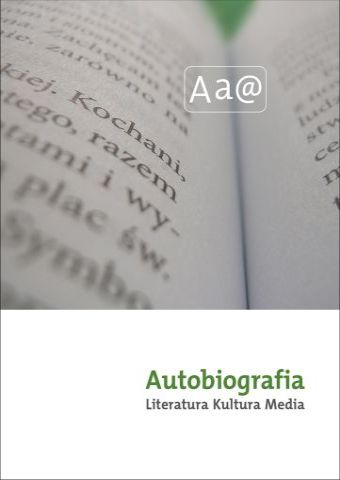







| Authors: |
Solveiga
Daugirdaité
Institute of Lithuanian Literature and Folklore |
| Keywords: | mid-twentieth century literature women writers writers’ autobiography women’s autobiography self-representation in autobiography |
| Data publikacji całości: | 2015 |
| Page range: | 12 (61-72) |
| 1. | Benstok Shari, Authorizing the Autobiographical. In: The Private Self: Theory and Practice of Women’s Autobiographical Writings, ed. Shari Benstok, Routledge, London 1988. |
| 2. | Chanfrault-Duchet Marie-Françoise, Textualisation of the Self and Gender Identity in the Life-Story. In: Feminism and Autobiography: Texts, Theories, Methods, ed. Tess Cosslett, Celia Lury and Penny Summerfield, Routledge, London–New York 2000. |
| 3. | Degutytė Janina, Nebaigta autobiografija. In: Atsakymai, Regnum fondas, Vilnius 1996. |
| 4. | Folkenflik Robert, Introduction: The Institution of Autobiography. In: The Culture of Autobiography: Constructions of Self-Representation, ed. Robert Folkenflik, Stanford University Press, Stanford, California 1993. |
| 5. | Leinartė Dalia, Adopting and Remembering Soviet Reality: Life Stories of Lithuanian Women, 1945–1970, Rodopi, Amsterdam 2010. |
| 6. | Lejeune Philippe, The Autobiographical Contract. In: French Literary Theory Today: A Reader, ed. Tzvetan Todorov, transl. R. Carter, Cambridge University Press, Cambridge 1982, p. 193, internet access: https://english4321.files.wordpress.com/2010/08/philippe-lejeune-the-autobiographical-contract.pdf. |
| 7. | Mitaitė Donata, Tomas Venclova. Speaking Through Signs, transl. Diana Bartkutė-Barnard, Lietuvių literatūros ir taustosakos institutas, Vilnius 2002. |
| 8. | Tarybinių lietuvių rašytojų autobiografijos, Vol. 1, A–K; Vol. 2, L–Ž, ed. Aldona Mickienė, Vaga, Vilnius 1989. |
| 9. | Vaičiūnaitė Judita, Mabre viešbutis. Memuarinė proza, Lietuvos rašytojų sąjungos leidykla, Vilnius 2009. |